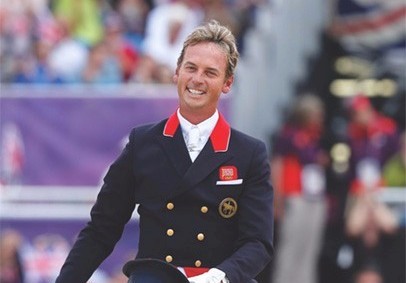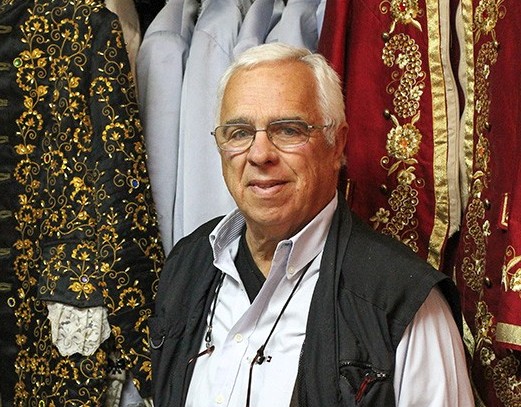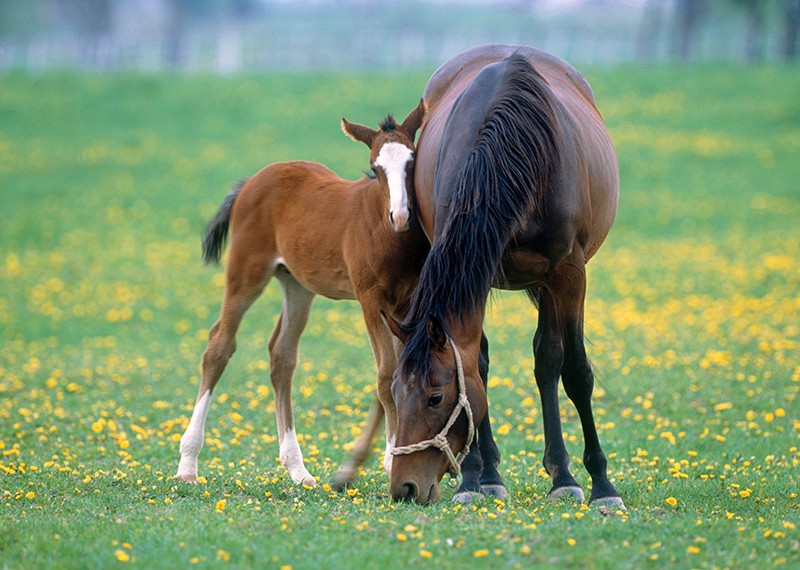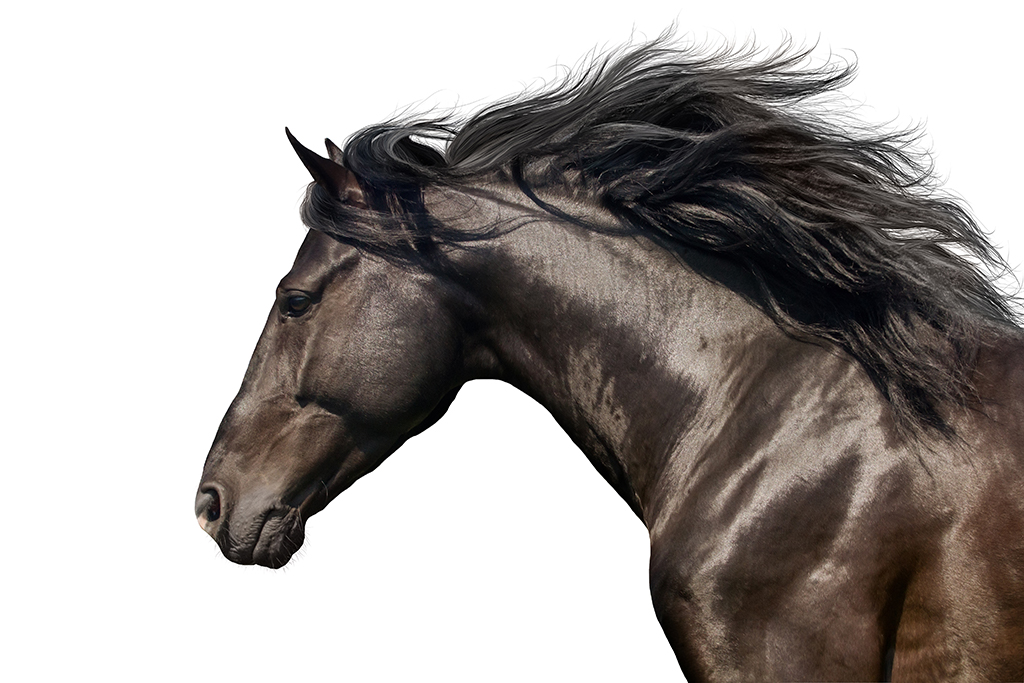
Interview with Carl Hester
Interview with Carl Hester at Sydney Equitana (Issue 14 2013)
Baroque Horse Magazine had the chance to catch up with British Olympic Gold medalist and Dressage Rider Carl Hester, MBE, recently when Carl was Down Under in Sydney, Australia as part of Equitana Asia Pacific. Carl was conducting a ‘Specialist Dressage Clinic’ and had the stands packed to capacity at each of his appearances; he was very much a crowd favourite! His sense of humour and engaging personality ensured that all his clinic participants enjoyed their time with him and were able to relax and get the most out of his instruction and advice.
Here’s what Carl had to say to BHM Editor, Danielle Skerman:
BH: Recently You had ‘The Dressage Convention’ and you invited classical trainer Sylvia Loch and Portuguese Dressage rider Miguel Ralão there. How did it all go?
CH: It was pretty groundbreaking to do that, and it was really well-received. We are trying, after all, to include everybody. For so long, competitive dressage has been seen so differently. It was very welcoming to come and do that. Miguel of course with the Iberian horses, they’re so popular now in England, and they’re a little bit misunderstood. That’s why people think that they’re amateur horses and they’re actually quite busy-going horses. Miguel brought this brilliant breath of fresh air about the breed and how to ride them, and what they do. It was a brilliant mix.
It’s all still very organic, obviously, in its stages of how we’re going to run it. I think it’s a way for the future. There was everybody there; there was the Valegro fans there. We went from the bottom to the top. We started with people that couldn’t even sit to the trot, and then of course, we ended up with Valegro. It did keep everybody happy. We’d like to do that every year.
BH: Would you bring it to Australia?
CH: Why not? You don’t obviously have to travel horses to do that. It’s all about everybody’s seeing the final result. The point is, here, you can take people that aren’t the finished products and help mould them. It is definitely something that you could travel.
BH: You feel it was a success?
CH: It was definitely a success, from the amount of people that came, from the amount of comments. I think the fact that we were using Twitter screens; we were doing really…I had to pretend I knew how to do Twitter. “If you can’t do this, you’re really not keeping up with the times (spoken in jest) and I can’t do it myself!. (laughs)
You know what it did? That included people that couldn’t come to the events, so they could send their Tweets in. These were coming up on the screen, so that if they wanted to ask specific questions for any of the clinicians, then that worked really well. Obviously when there’s some really difficult questions, you can ignore them and go to the next one. Yeah, it worked well.
BH: With the classical influences now becoming more popular…do you feel that you were able to make a good impression in encouraging more people with this direction?
CH: Yeah. What we were trying to say is at the end of the day, dressage is supposed to look nice, it’s supposed to look elegant, it’s supposed to look easy. You can see the difference. The differences being that classical is still a little bit without power, and competitive can be overpowered and look ugly. If you can get the right blend of those two together, then you’ve got the right final look, I think. There was something to learn from here and there was something to learn on the other end as well.
BH: What should people look for when buying a dressage horse ?
CH: Obviously from the perspective of me looking for an Olympic horse type of ability, I think that the one thing that is also worth mentioning is as many horses in the early days that you would look at…and I would think it wouldn’t be right. I would get on it and I’d feel something different to what you see. I think that’s a really important thing, that sometimes what you see isn’t what you feel or vice versa.
I would be more drawn towards a high-tempered horse, high-spirited horse, but that involves reactions and it has to have the right reactions. For me, a horse that’s going to make a future Grand Prix horse is something that if I touch that horse with a whip, it would do something. If I touch it with a whip and it stands there with its ears forward, then that’s more for the police force. I look at it like that. I don’t want something that’s crazy, bolting, running off, but I want something that if I touch it or I do something when I get on it, I feel it’s going to react. That way, you know you can develop towards, obviously, the very high end of Grand Prix.
Paces-wise; obviously, if you’re talking about dressage, then the walk and the canter are the most important. I always try and look for a horse that has almost a show jumping hind leg for a canter, and trots are the least of, I think, anybody’s problems with development. A trot can take 3, 4, 5 years; that’s quite normal. You can turn something normal, which let’s face it, if you’re thinking about a future horse soundness, you’re better to buy a normal-moving horse that has reactions, that can be trained to be a special mover. Then that way, when you can have a horse that you have a turn off and a turn on button, then those are the ones obviously, that don’t have to move spectacularly. That should only really be something that you acquire at Grand Prix; not a very spectacular mover as a young horse because soundness is so difficult.
BH: Most memorable horse and why?
CH: Mine would have been Escapado. He was the most difficult horse I ever trained to Grand Prix. The reason I would pick him, is that instead of something that was winning, I suppose it was because that horse made me grow up. That actually made me realise that you can be happy without winning. I was happy that I came 12th at the Olympics on him rather than winning a gold, because I actually realised how far a horse like that has to go to do that for you.
I was last in Aachen, which was the biggest dressage show in the world the year of the Olympics. That also taught me to deal with people’s criticisms, because you can imagine being selected for the Olympics and you’re last in Aachen about 6 weeks before. That doesn’t go down well with your other team members. I always said, “I can’t take a horse like this to a show like Aachen and just bring him out, do the test. He can’t do it. If you let me take him to Athens, it’s just going to be 100 degrees, he can be there for 2 weeks and he’ll do it. I know he’ll do it.” I opened my big mouth the week before, and I’d done this article and I’d said…the day I rode, it came out in the article and I’d said, “I’ll take Escapado to Athens, stick two fingers up in the air at all the doubters and he’ll do it.” You can imagine the pressure I’d put myself under.
I had to ride in the show thinking, “If you don’t do it, you’re dead.” He was unbelievable. It was the beginning of his career, and changed his life by doing it and by being in a show with me for 2 weeks. He went on to be 3rd at the European Championships. It was my biggest success for me with a horse, rather than something like everyone would always imagine I would say, obviously Utopia, because he won gold medals. Utopia was a professor and would have done it with or without me. That’s why he’s not my favourite.”
BH: Do you take anything from other people or sport in your training?
CH: I probably say it depends what area you were brought up in as to how you are now, because I was lucky enough to be brought up on a small island with no cars. It was just riding horses, and there were no saddles and no bridles. I suppose I just felt that that was quite natural for learning balance. Of course, what’s ruined all of that is health and safety. People can’t…sadly in England people can’t ride like that. Your kids are not allowed to ride like that, which is very difficult for them to then be independent, really. I think that, this is a really ridiculous thing to say, but after the Olympics, one of our main common questions was, did I think that our success was down to the fact we turned our horses out? I said, “No, it’s training.”
They don’t learn it in a field, but obviously, the way we keep them is all part of that. It’s that and the training. Just like you wouldn’t go up to somebody in Australia or somebody in England who’d won Badminton and say, “Did you win Badminton because you turn your horse out in the field?” It’s unheard of. That’s how far dressage has had to come to catch up with a lot of these other things. . . . it has changed and it is bringing people together. The dressage convention was about bringing in different people. Miguel Ralão from Portugal, and a wonderful lady from Scotland named Sylvia Loch who focuses very much on position, but bringing everybody together so it didn’t look so differentiated all the time. I’m very hopeful for how it’s going. I don’t see it being so different any more.
BH: We get so caught up in working for whatever goal it may be, whether it be dressage, cutting, or whatever it is. Have you a got a tip that people can do just to have fun; one tip that they can take home and just have some fun with their horses?
CH: My point would also come from me being a goal-orientated person; as a competitor, you are. I think the day that I realised that winning didn’t tell me where I was in my career that I enjoyed riding again. I always saw that if I won then I would be happy about it. So few horses that you have in your life, obviously, are top level as well are going to be gold medalists. They’re not all going to be gold medalists. Once I started shifting my ideas to, ‘That’s the best it can go. That’s the best it’s gone,’ then I was happy. I originally always used to think every one of them has to win, and if they win then I’ll be happy, but you’re not. Actually being happy with the fact that I did the best I could instead of thinking it always has to be the gold medal, first, second, or third. Then I enjoy it, because the pressure you put yourself under to be a winner is ridiculous. There’s a lot of people that make themselves very ill and don’t enjoy it at all. I suddenly realised that I felt ill when I was going to ride. I thought, “I’d never felt like that. What have I done?” It was because all I thought that winning was my final goal. Winning only is temporary happiness. You’ve got to be happy with yourself first.
www.carlhester.co.uk www.thedressageconvention.co.uk
videos of the convention www.thedressageconvention.co.uk/watch-online/#watch
Enjoyed this interview?
Why not subscribe and get the beautifully printed coffee table magazine delivered to your door? Posts world wide.
To subscribe click here





